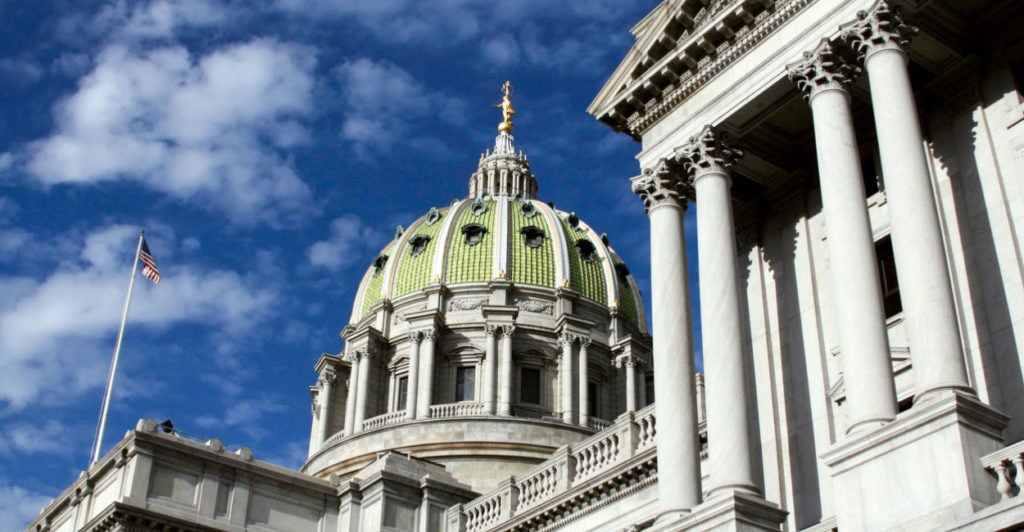State capitals across the country are proving they are not immune to the malady that has afflicted the policy process in Washington.
The latest case in point: Pennsylvania.
In a quietly released statement issued late on a Friday afternoon, the Pennsylvania Human Relations Commission, an agency of the state government, announced a proposal to effectively redefine the word “sex” in the state’s discrimination law to also include “sexual orientation” and “gender identity,” or “SOGI” for short.
This proposal wouldn’t change the law—only the commission’s “guidance” on the matter. But this new “guidance” would mean the law would be enforced as if it had changed.
This guidance comes on the heels of repeated failures to accomplish the same outcome through the legitimate way of changing laws—through the legislative process and with the consent of the governed.
It is a move that mimics the Obama administration’s executive and bureaucratic overreaches when Congress rejected LGBT demands for changes in federal law. It also represents a serious usurpation of legislative authority and an end run around our political system.
First, a little background and some history.
For more than a decade, LGBT activists have sought to add sexual orientation and gender identity language to Pennsylvania’s anti-discrimination statute. This has become one of the most hardly fought social policy efforts of the left.
Pennsylvania is certainly not unique in receiving such challenges from the social left.
It is notable, however, that Pennsylvania citizens have repeatedly been successful in stopping these proposals in the Legislature when most of the states in the northeast have not.
There are several reasons for this:
- History
This diverse context has created higher sensitivity to laws that would police and sanction beliefs. Simply put, Pennsylvanians value tolerance.
Pennsylvania has a long history of tolerance, religious freedom, and protecting the rights of conscience. That heritage has drawn to the state a citizenry that represents a broad array of religious backgrounds and accepts those who are different.
- Intolerance in Other States
As has been witnessed in other states, sexual orientation and gender identity laws and regulations have worked against universal tolerance. They have empowered government prosecutors and bureaucrats to force actions and speech that can cause a citizen to violate their conscience and religious convictions.
Just ask Barronelle Stuztman or Melissa Klein. Such coercive and punitive action by government undermines tolerance and only spurs division.
- An Affront to Women’s Rights
Examples of this can be found across the country, whether it’s a biologically male adult changing clothes in front of girls in a swim club locker room in Seattle, or teens and children facing similar circumstances in their schools, or female school athletes seeing their opportunities for success evaporate as physical males are being allowed to compete against them.
Sexual orientation and gender identity laws have been used to suggest that restricting bathroom use by biological sex is discriminatory. This has forced policy changes that threaten bathroom personal privacy and, in some cases, safety. The result is often an affront to the rights of women.
These and other concerns, brought to the attention of Pennsylvania lawmakers by their constituents, have thus far succeeded in preventing a statewide adoption of sexual orientation and gender identity legislation.
This despite significant spending by national special interests and the hiring of some of the most powerful lobbyists in Harrisburg to pressure the House and Senate to cave.
That brings us to Pennsylvania’s Democratic governor, Tom Wolf.
Wolf, named America’s most liberal governor, instigated a shakeup in the Human Relations Commission by demoting the chairman and installing a new chairman to further his agenda.
Pennsylvania Gov. Tom Wolf has elected in 2014 and has vowed to seek re-election in 2018. (Photo: Archie Carpenter/UPI/Newscom)
Now, in the face of a legislative stalemate, the Pennsylvania Human Rights Commission is making an end run around the Legislature to impose a freedom-robbing policy through a bureaucratic agency that was founded to guard our civil liberties.
The Pennsylvania Human Rights Commission’s website, www.phrc.pa.gov, is inviting public comment on the proposed guidance via email to chreese@pa.gov through Friday, May 26.
“This change in guidance by the [Pennsylvania Human Rights Commission] effectively means a change in law, a change that would be devastating to personal privacy and religious liberty,” said Randall Wenger, chief counsel of the Independence Law Center.
“That’s why it’s important that lovers of liberty make their voice heard to the Pennsylvania Human Relations Commission during their public comment period.”
Lovers of the legitimate, constitutional lawmaking process may wish to chime in as well.
